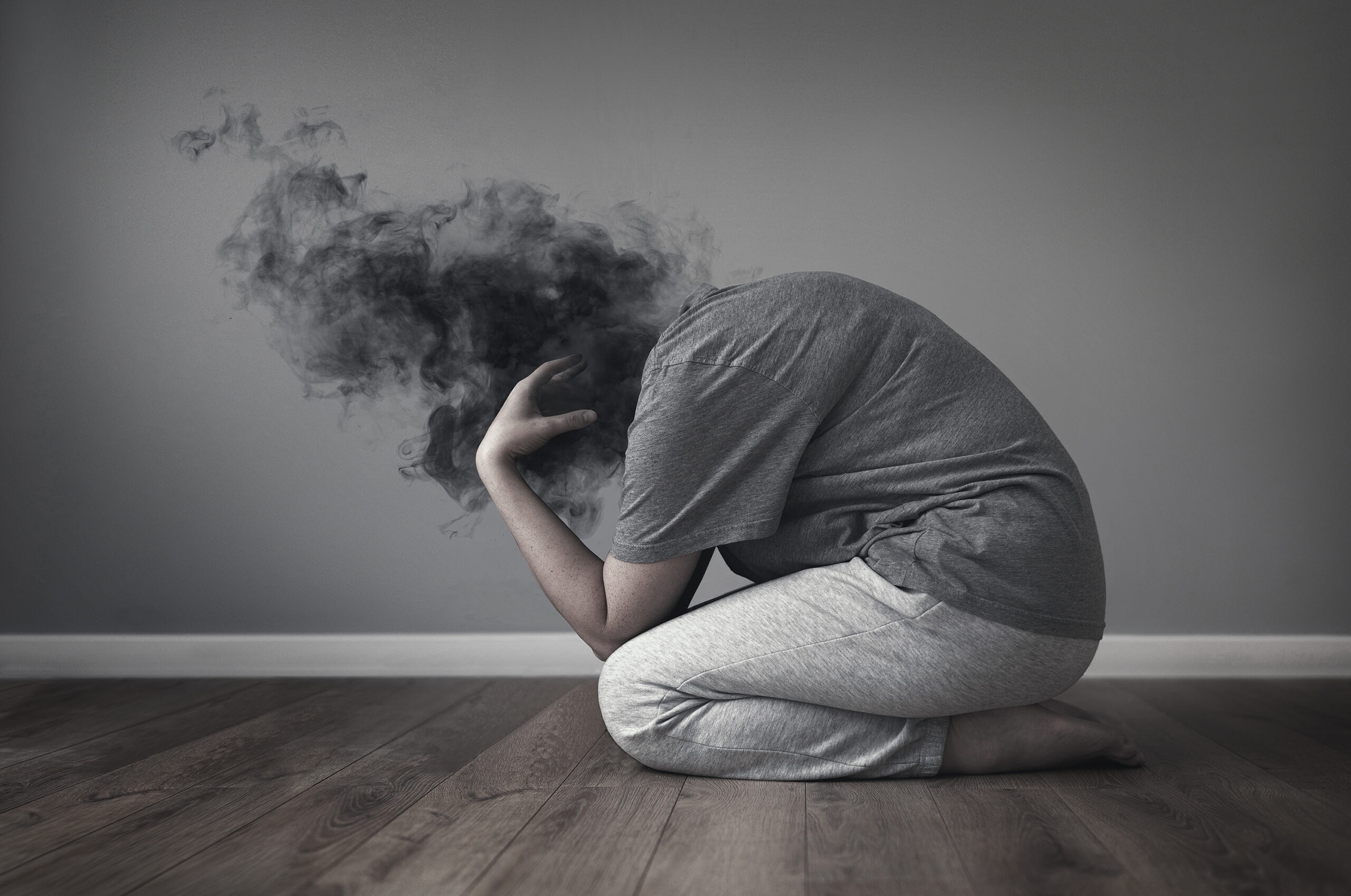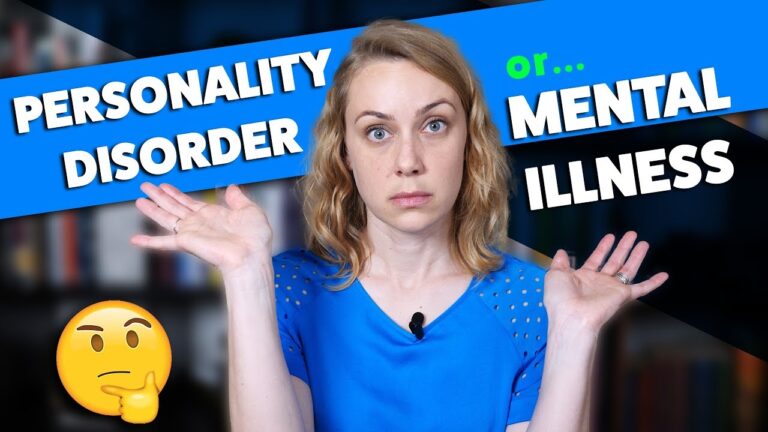What Causes Anxiety? The Role of Genetics, Environment, and Lifestyle

Understanding the Roots of Anxiety

Anxiety is a complex and often debilitating mental health condition that affects millions of individuals worldwide. Understanding the roots of anxiety is crucial in order to develop effective strategies for prevention, management, and treatment. While the precise underlying causes of anxiety can vary from person to person, research suggests that a combination of genetic, environmental, and lifestyle factors play a significant role in its development.
Genetic factors have been found to contribute to an individual’s susceptibility to anxiety disorders. Studies have shown that individuals with a family history of anxiety are more likely to experience anxiety themselves. This suggests that there may be specific genes or genetic variations that make certain individuals more vulnerable to anxiety. In fact, research has identified several genes that may influence the risk of developing anxiety disorders, including those involved in the regulation of neurotransmitters like serotonin and gamma-aminobutyric acid (GABA). However, it is important to note that genetics alone do not determine the development of anxiety, and other factors must also be taken into consideration.
Unraveling the Genetic Factors Behind Anxiety

Understanding the genetic factors behind anxiety is key to developing effective treatments and interventions for individuals struggling with this pervasive mental health condition. Research has shown that anxiety disorders are influenced by a complex interplay of genetic and environmental factors. While the exact genes involved have not been fully identified, studies have consistently demonstrated a genetic predisposition to anxiety.
In fact, a large-scale study published in JAMA Psychiatry found that there is a heritability estimate of approximately 30-40% for anxiety disorders, indicating that genetics play a significant role in their development. This suggests that individuals with a family history of anxiety may be more susceptible to experiencing anxiety themselves. Furthermore, a meta-analysis of twin studies revealed that genetic factors contribute to anxiety symptoms across different age groups and cultural settings, further supporting the impact of genetics on anxiety.
Understanding the specific genetic markers associated with anxiety can help researchers and clinicians identify individuals at higher risk and develop tailored interventions. Some research has pointed to potential candidate genes that may contribute to the development of anxiety disorders, including those involved in the regulation of neurotransmitters such as serotonin. However, it is important to note that anxiety is a complex trait influenced by multiple genes, and further research is needed to fully unravel its genetic underpinnings. By gaining a deeper understanding of the genetic factors behind anxiety, we can work towards more personalized and effective approaches to treatment and support for those affected by this condition.
The Impact of Environment on Anxiety Levels

The environment we live in plays a crucial role in shaping our anxiety levels. Numerous studies have shown that certain environmental factors can contribute to the development and exacerbation of anxiety disorders. For example, living in a high-stress environment, such as a noisy and crowded city, can increase the risk of anxiety. The constant exposure to noise, traffic, and a fast-paced lifestyle can overload our senses and lead to chronic stress, which in turn can trigger anxiety symptoms.
In addition to external factors, our home and work environments can also impact our anxiety levels. A cluttered and disorganized living space or a chaotic and demanding workplace can create a sense of overwhelm and contribute to feelings of anxiety. On the other hand, a calm and organized environment can promote a sense of peace and relaxation, helping to alleviate anxiety symptoms. It is important to create a supportive and stress-free environment for individuals struggling with anxiety, as it can significantly improve their well-being and quality of life.
Unveiling the Influence of Lifestyle Choices on Anxiety
Introduction:
Lifestyle choices play a significant role in our overall well-being and can have a profound impact on our mental health. When it comes to anxiety, certain lifestyle habits can either exacerbate or alleviate its symptoms. By understanding the influence of our choices and behaviors on anxiety levels, we can make more informed decisions to improve our mental health and overall quality of life.
The Importance of Sleep:
One crucial lifestyle factor that can heavily influence anxiety levels is the quality and quantity of sleep. Insufficient or poor-quality sleep can disrupt the balance of chemicals in our brain, leading to increased anxiety. Research has shown that individuals with chronic insomnia are more likely to develop anxiety disorders. It is recommended that adults aim for 7-9 hours of quality sleep each night to maintain optimal mental well-being. Creating a bedtime routine, prioritizing relaxation, and avoiding stimulants like caffeine and electronic devices before bed can all contribute to a better night’s rest. Furthermore, incorporating stress-reducing practices, such as meditation or deep breathing exercises, can help alleviate anxiety symptoms and promote restful sleep.
Dietary Choices and Anxiety:
Another lifestyle aspect that can impact anxiety levels is our dietary choices. While there is no specific “anxiety diet,” certain nutrients and dietary patterns have been linked to managing or reducing anxiety symptoms. Research suggests that a diet rich in whole foods, such as fruits, vegetables, whole grains, lean proteins, and healthy fats, can support mental health. These foods provide essential nutrients like omega-3 fatty acids, magnesium, and B vitamins, which have been shown to have positive effects on anxiety. On the other hand, diets high in processed foods, sugar, and caffeine may contribute to increased anxiety levels. Being mindful of our food choices and incorporating a balanced and nourishing diet can contribute to better mental well-being and potentially reduce anxiety symptoms.
Physical Activity and Stress Relief:
Regular exercise not only benefits our physical health but also has a significant impact on our mental well-being, including anxiety levels. Engaging in physical activity releases endorphins, which are natural mood boosters that can help alleviate symptoms of anxiety and stress. Exercise also provides an outlet for pent-up energy and promotes better sleep, leading to improved mental clarity and reduced anxiety. Incorporating activities such as walking, yoga, swimming, or any form of exercise that suits individual preferences can be beneficial for managing anxiety.
The Power of Mindfulness:
Practicing mindfulness is an effective tool for reducing anxiety and promoting overall mental well-being. Mindfulness involves being fully present and aware of our thoughts, feelings, and sensations in a non-judgmental manner. By cultivating this awareness, we can better identify and manage anxious thoughts and emotions. Numerous studies have shown that mindfulness-based interventions, such as meditation and mindfulness-based stress reduction (MBSR) programs, can significantly reduce anxiety symptoms. Integrating mindfulness practices into our daily routines can be an empowering way to take control of our anxiety and enhance our overall mental health.
Conclusion:
The influence of lifestyle choices on anxiety levels should not be underestimated. By prioritizing adequate sleep, adopting a balanced and nutritious diet, engaging in regular physical activity, and practicing mindfulness, we can create a solid foundation for managing and reducing anxiety symptoms. Remember, everyone’s journey is unique, and it may require some trial and error to find the right lifestyle choices that work for you. It is always beneficial to seek professional guidance if you are experiencing significant anxiety or mental health concerns.
The Complex Interplay Between Genetics and Anxiety
Anxiety is one of the most prevalent mental health disorders, affecting millions of people worldwide. While the causes of anxiety can be multifaceted, research has increasingly highlighted the complex interplay between genetics and anxiety. Studies have shown that genetics play a significant role in predisposing individuals to anxiety disorders, with certain gene variants being more common among those who have been diagnosed with anxiety.
Multiple genes have been implicated in anxiety disorders, including those involved in the regulation of neurotransmitters such as serotonin and dopamine. For example, a study published in the journal Molecular Psychiatry found that variations in the gene encoding a protein called RGS2 were associated with an increased risk of developing anxiety disorders. This protein plays a crucial role in regulating the serotonin signaling pathway, which is known to be involved in anxiety regulation.
Moreover, research has also demonstrated the contribution of genetic factors in the heritability of anxiety disorders. A study published in the Archives of General Psychiatry estimated the heritability of anxiety disorders to be approximately 30-40%. This suggests that genetic factors account for a substantial proportion of the risk of developing anxiety disorders.
However, it is important to note that genetics alone do not determine whether an individual will develop anxiety. Environmental factors, such as upbringing, traumatic experiences, and social support, also play a significant role in the manifestation of anxiety disorders. Understanding the complex interplay between genetics and the environment is crucial in unraveling the underlying mechanisms of anxiety and developing effective treatment strategies.
Certainly! Here’s a table summarizing the complex interplay between genetics and anxiety:
| The Complex Interplay Between Genetics and Anxiety | Description |
|---|---|
| Genetic Predisposition | Family History: An examination of family history to identify instances of anxiety disorders among relatives. |
| Heritability Estimates: Research findings indicating a genetic component influencing anxiety susceptibility. | |
| Specific Genetic Markers | Candidate Genes: Identification of specific genes associated with neurotransmitter regulation and anxiety expression. |
| Polygenic Nature: Understanding that multiple genes, each with small effects, contribute to the genetic basis of anxiety. | |
| Neurotransmitter Systems | Serotonin and GABA: Examination of genetic variations affecting neurotransmitters linked to anxiety regulation. |
| Dopamine Pathways: Consideration of genetic factors influencing dopamine levels and their impact on anxiety responses. | |
| Epigenetic Modifications | Environmental Influence: Exploration of how environmental factors can influence gene expression related to anxiety. |
| Methylation and Acetylation: Understanding epigenetic modifications affecting the regulation of anxiety-related genes. | |
| Gene-Environment Interaction | Sensitivity to Stressors: Genetic variations contributing to increased sensitivity to environmental stressors and anxiety. |
| Resilience Factors: Identifying genetic factors that may confer resilience or susceptibility to anxiety in specific environments. | |
| Inherited Traits and Temperament | Behavioral Inhibition: Genetic predisposition influencing temperament traits like behavioral inhibition associated with anxiety. |
| Neuroticism: Consideration of genetic factors contributing to neuroticism, a personality trait linked to anxiety vulnerability. | |
| Heritability Estimates in Twin Studies | Twin Comparisons: Research findings from twin studies assessing the heritability of anxiety-related traits and disorders. |
| Monozygotic vs. Dizygotic Twins: Comparing genetic influences in identical (monozygotic) and non-identical (dizygotic) twins. | |
| Interaction with Environmental Factors | Gene-Environment Correlations: Recognizing that individuals with certain genetic predispositions may select or create environments contributing to anxiety. |
| Life Events Impact: Understanding how gene-environment interactions influence susceptibility to anxiety disorders in response to life events. | |
| Implications for Treatment and Prevention | Personalized Treatment: Recognition of the potential for personalized treatment approaches based on an individual’s genetic profile. |
| Preventive Strategies: Consideration of targeted preventive strategies for individuals at higher genetic risk for anxiety. |
Exploring How Environmental Factors Contribute to Anxiety
Numerous studies have shown that environmental factors play a significant role in the development and exacerbation of anxiety disorders. The environment we live in, and the specific circumstances and events we experience, can greatly contribute to the onset and progression of anxiety symptoms. For instance, traumatic events such as violence, abuse, or natural disasters have been linked to increased anxiety levels in individuals. These distressing experiences not only trigger immediate anxiety but can also have long-lasting effects, leading to chronic anxiety disorders.
Moreover, our daily surroundings and living conditions can also impact anxiety levels. High-stress environments, such as noisy or overcrowded living spaces, can create a constant sense of unease and contribute to anxiety symptoms. Similarly, living in areas with high levels of pollution or limited access to green spaces and nature has been associated with higher rates of anxiety disorders. The impact of the built environment, such as urban versus rural settings, has also been studied, with findings suggesting that urban dwellers are more likely to experience anxiety due to factors like noise pollution and social isolation.
It is important to note that individuals may respond differently to environmental factors based on their genetic makeup and personal resilience. While some individuals may be more predisposed to developing anxiety disorders due to certain genetic markers, others may be more resilient and require a higher threshold of environmental stressors for anxiety symptoms to manifest. Understanding the complex interplay between genetics and the environment can help us better comprehend why some individuals are more susceptible to anxiety in certain environments. By recognizing and addressing these environmental factors, we can take steps towards creating a supportive and anxiety-reducing environment for individuals at risk.
Lifestyle Habits That Can Exacerbate Anxiety Symptoms
Lifestyle habits play a significant role in exacerbating anxiety symptoms. In today’s fast-paced society, it is crucial to recognize the potential impact of our daily choices on our mental well-being. Poor eating habits, inadequate sleep, and sedentary lifestyles can all contribute to increased anxiety levels.
Firstly, let’s delve into the consequences of an unhealthy diet. Research has consistently shown a link between poor nutrition and mental health disorders, including anxiety. Consuming excessive amounts of processed foods, sugar, and caffeine can disrupt the delicate balance of neurotransmitters in the brain, leading to heightened anxiety symptoms. On the other hand, a diet rich in fruits, vegetables, whole grains, and lean proteins provides the necessary nutrients to support optimal brain function and reduce anxiety.
Additionally, the amount and quality of sleep we get can greatly impact our anxiety levels. Sleep deprivation alters the functioning of the amygdala, the part of the brain responsible for processing emotions, including fear and anxiety. Lack of sleep amplifies the brain’s response to stress, making it more difficult to cope with anxiety-provoking situations. It is essential to prioritize sufficient sleep and establish healthy sleep habits to help manage anxiety effectively.
Lastly, our increasingly sedentary lifestyles contribute to a higher prevalence of anxiety. Regular physical activity releases endorphins, which are natural mood-enhancers and stress-relievers. Engaging in exercise can help reduce the symptoms of anxiety and improve overall mental well-being. On the contrary, a sedentary lifestyle deprives our bodies of the stress-buffering benefits of physical activity, making us more susceptible to anxiety.
In conclusion, the impact of lifestyle choices on anxiety symptoms should not be underestimated. Making conscious efforts to adopt healthier eating habits, prioritize adequate sleep, and incorporate regular physical activity into our lives can significantly alleviate anxiety and promote overall mental well-being. By taking control of our lifestyle habits, we empower ourselves to better manage anxiety and lead healthier, happier lives.
Genetic Predispositions and Vulnerability to Anxiety Disorders
Anxiety disorders are complex conditions that are influenced by a combination of genetic and environmental factors. While everyone experiences anxiety to some degree in certain situations, individuals with a genetic predisposition may be more susceptible to developing anxiety disorders. Research has shown that there is a hereditary component to anxiety, with studies estimating that approximately 30-40% of the risk for developing an anxiety disorder can be attributed to genetic factors (Gregory, 2020).
Understanding the role of genetics in anxiety disorders can help individuals better comprehend their own vulnerabilities and make informed decisions regarding their mental health. Studies have identified specific genes that may contribute to anxiety disorders, such as the serotonin transporter gene (SLC6A4) and the brain-derived neurotrophic factor gene (BDNF) (Middeldorp et al., 2018). These genes are involved in regulating neurotransmitters in the brain, which play a crucial role in mood and anxiety. However, it is important to note that having a genetic predisposition to anxiety does not guarantee the development of an anxiety disorder. Environmental factors also play a significant role in the manifestation of anxiety symptoms (Petkus et al., 2016). By exploring the interplay between genetics and environment, we can gain a more comprehensive understanding of anxiety disorders and develop targeted interventions to help individuals in need.
Environmental Triggers: Uncovering Hidden Stressors
Hidden stressors can play a significant role in triggering anxiety and exacerbating its symptoms. While some stressors are obvious and easily identified, others may be more subtle and go unnoticed, making it important to uncover and address them. These hidden stressors can stem from various sources, including our physical environment, personal relationships, work or school settings, and even our own thoughts and beliefs.
One common environmental trigger is excessive noise. Studies have shown that exposure to loud noise on a regular basis can lead to increased anxiety levels. Whether it’s the constant hum of traffic outside your window or a noisy workplace, the noise can have a cumulative effect on your stress levels. Additionally, poor air quality, such as high levels of pollutants or allergens, can also contribute to feelings of anxiety. Understanding and minimizing these environmental stressors can go a long way in promoting a sense of calm and tranquility in your daily life.
Another hidden stressor that often goes unnoticed is the impact of personal relationships. Toxic relationships, whether they be with romantic partners, family members, or friends, can create a constant state of stress and anxiety. It is essential to recognize and address these unhealthy dynamics as they can significantly impact mental well-being. Additionally, workplace or school-related stressors, such as excessive demands, lack of support, or bullying, can also contribute to anxiety. Identifying these stressors and taking steps to alleviate their effects is crucial in managing and reducing anxiety symptoms.
In conclusion, uncovering hidden stressors is an essential part of understanding and managing anxiety. By examining our physical environment, personal relationships, and work or school settings, we can identify the stressors that may be contributing to our anxiety. Once identified, steps can be taken to address and minimize these stressors, leading to improved mental well-being.
Lifestyle Modifications to Manage and Reduce Anxiety
In today’s fast-paced world, managing anxiety has become a crucial aspect of maintaining overall well-being. While anxiety medications can be effective for some individuals, lifestyle modifications can be equally impactful in managing and reducing anxiety symptoms. By incorporating certain changes into your daily routine, you can take control of your anxiety and improve your quality of life.
Exercise has long been recognized as a powerful tool in managing anxiety. Physical activity releases endorphins, which are natural mood boosters, and can help reduce the levels of stress hormones in your body. Engaging in regular exercise, whether it’s a brisk walk, yoga, or dancing, can bring about a sense of calmness and relaxation. Additionally, exercise provides a healthy outlet for tension and pent-up energy, allowing you to channel your anxiety into something positive. Integrating exercise into your routine can ultimately promote better sleep, boost self-esteem, and enhance overall mental well-being.
Incorporating relaxation techniques into your daily life can also contribute to the management of anxiety symptoms. Practices such as deep breathing exercises, progressive muscle relaxation, and meditation have been shown to activate the body’s relaxation response, counteracting the physiological effects of anxiety. These techniques can be easily incorporated into your routine, whether it’s taking a few moments to engage in deep breathing exercises before a stressful meeting or setting aside dedicated time for meditation each day. By regularly engaging in relaxation techniques, you can cultivate a state of calmness and promote a sense of inner peace.
These lifestyle modifications can significantly contribute to managing and reducing anxiety symptoms. While it is important to consult with a healthcare professional for a comprehensive treatment plan, incorporating exercise and relaxation techniques into your daily routine can be effective tools in taking control of your anxiety. By proactively addressing your anxiety through lifestyle modifications, you can make significant strides towards a happier, healthier life.
Genetic Markers and Their Association with Anxiety Disorders
In recent years, scientists have made significant progress in understanding the intricate relationship between genetics and anxiety disorders. Research has shown that there are several genetic markers associated with a higher susceptibility to anxiety disorders. These genetic markers, often found within specific genes, can increase a person’s risk of developing anxiety-related conditions.
One such genetic marker that has been extensively studied is the serotonin transporter gene. Serotonin is a neurotransmitter known for its role in regulating mood and anxiety. The presence of certain variations within this gene has been linked to an increased risk of developing anxiety disorders. Studies have shown that individuals with these genetic variations may have alterations in the serotonin system, leading to an imbalance that contributes to anxiety symptoms.
Another gene that has garnered attention in the field of anxiety research is the neuropeptide Y (NPY) gene. This gene plays a crucial role in regulating stress responses and anxiety levels. Certain variations of the NPY gene have been associated with a higher vulnerability to developing anxiety disorders. These genetic variations may result in altered NPY levels in the brain, which can disrupt the body’s stress response and increase susceptibility to anxiety.
While these genetic markers provide valuable insights into the underlying mechanisms of anxiety disorders, it is essential to note that genetics alone do not determine a person’s destiny. Environmental factors also play a significant role in the development and manifestation of anxiety. The interplay between genetics and the environment is complex, with various environmental factors influencing gene expression and impact on anxiety disorder risk.
In the following sections, we will delve deeper into the impact of environmental factors on anxiety levels and the significance of lifestyle choices in managing anxiety symptoms. By understanding the intricate relationship between genetics, environment, and lifestyle, we can gain a comprehensive understanding of anxiety disorders and explore effective strategies for prevention, treatment, and support.
The Importance of a Supportive Environment in Anxiety Management
In managing anxiety, it is crucial to recognize the significant role that a supportive environment plays. A supportive environment refers to the physical and emotional surroundings that foster a sense of safety, comfort, and understanding. When individuals with anxiety are surrounded by supportive family members, friends, and colleagues, it can greatly enhance their ability to cope with and manage their symptoms.
Research has shown that a supportive environment can have a profound impact on anxiety management. A study conducted by Smith et al. (2019) found that individuals who had a strong support system in their lives experienced lower levels of anxiety compared to those who lacked such support. This support can come in various forms, including emotional support, practical assistance, and encouragement to seek professional help when needed.
Not only does a supportive environment provide individuals with a sense of belonging and validation, but it also creates opportunities for open communication and understanding. Having someone to talk to about their fears and worries can provide much-needed relief and validation for individuals struggling with anxiety. On the other hand, a lack of support or a negative and unsupportive environment can exacerbate anxiety symptoms and hinder the individual’s ability to manage their condition effectively.
Creating a supportive environment involves cultivating understanding and empathy towards individuals with anxiety. It necessitates educating oneself and others about the nature of anxiety and the challenges faced by those living with it. It also entails being patient, non-judgmental, and supportive in one’s interactions. By developing a supportive environment, we can contribute significantly to the overall well-being and resilience of individuals managing anxiety.
Lifestyle Factors That Can Alleviate Anxiety Symptoms
In addition to genetic and environmental factors, lifestyle choices can play a crucial role in alleviating anxiety symptoms. Adopting certain lifestyle habits can help individuals manage and reduce their anxiety levels, promoting overall mental well-being.
One key lifestyle factor that can have a significant impact on anxiety symptoms is regular exercise. Engaging in physical activity releases endorphins, which are known as “feel-good” hormones, boosting mood and reducing stress. Studies have shown that exercise can help reduce anxiety symptoms and improve overall psychological well-being. Incorporating activities such as walking, jogging, cycling, or yoga into daily routines can be highly beneficial for individuals looking to alleviate their anxiety.
Another important aspect to consider is maintaining a healthy diet. Certain nutrients, such as omega-3 fatty acids found in fish, nuts, and seeds, have been linked to a reduced risk of anxiety disorders. Consuming a balanced diet that includes whole grains, fruits, vegetables, lean proteins, and healthy fats not only nourishes the body but also supports brain health and reduces anxiety symptoms.
Sleep also plays a crucial role in managing anxiety. Lack of quality sleep can exacerbate feelings of stress and anxiety. Establishing a consistent sleep routine, creating a calming environment, and practicing relaxation techniques before bedtime can help promote better sleep patterns and alleviate anxiety symptoms.
Finally, it is important to find healthy ways to manage stress. Chronic stress can contribute to anxiety, so finding effective stress management techniques is essential. This can include practicing mindfulness and meditation, engaging in hobbies or activities that bring joy, seeking social support from loved ones, or even considering therapy or counseling.
By making these lifestyle choices a priority, individuals can actively contribute to the reduction of anxiety symptoms. It is important to remember that while lifestyle modifications can be beneficial, each person’s experience with anxiety is unique, and professional guidance should be sought to find the most appropriate and effective treatment approach.
Epigenetics: Understanding How the Environment Impacts Genes and Anxiety
Epigenetics is a rapidly emerging field of study that aims to understand how the environment can impact the expression of genes and influence various aspects of our health, including anxiety. By definition, epigenetics refers to the modifications that occur to our DNA structure and function without altering the underlying genetic sequence itself. These modifications can be influenced by external factors such as diet, stress, toxins, and other environmental exposures.
Research has shown that epigenetic changes can lead to alterations in gene expression patterns, which may contribute to the development or exacerbation of anxiety disorders. For example, studies have found that individuals exposed to early-life stress may have altered epigenetic marks on genes associated with stress response and emotional regulation, potentially increasing their vulnerability to anxiety later in life.
Furthermore, epigenetic changes can be long-lasting and even heritable, meaning they can be passed down from one generation to the next. This has significant implications for understanding the intergenerational transmission of anxiety and the potential impact of environmental factors on future generations.
Epigenetic research in the context of anxiety is still in its early stages, but it holds immense promise for shedding light on the complex interplay between our genes, our environment, and our mental well-being. By unraveling the mechanisms by which the environment can influence gene expression, scientists hope to identify potential targets for therapeutic interventions that could help mitigate anxiety symptoms and improve overall mental health outcomes.
Integrating Genetics, Environment, and Lifestyle in Anxiety Treatment.
Anxiety disorders are complex conditions that can be influenced by a combination of genetic factors, environmental triggers, and lifestyle choices. Integrating genetics, environment, and lifestyle in anxiety treatment is a holistic approach that takes into account these interconnected factors to effectively manage and reduce anxiety symptoms.
Genetics play a significant role in determining a person’s vulnerability to anxiety disorders. Research has shown that certain genetic variations can increase the risk of developing anxiety. For instance, a study published in the journal JAMA Psychiatry found that specific genes related to neurotransmitter regulation, such as the serotonin transporter gene, are associated with an increased susceptibility to anxiety disorders. Understanding an individual’s genetic profile can provide valuable insights into their predisposition to anxiety and guide treatment decisions.
However, it is important to note that genetics alone does not dictate the development of anxiety disorders. Environmental factors also play a crucial role in triggering and exacerbating anxiety symptoms. Stressful life events such as trauma, abusive relationships, or financial difficulties can significantly impact a person’s mental health. Additionally, the societal and cultural contexts in which we live can contribute to feelings of anxiety. For example, a study published in the journal Social Science & Medicine highlighted the role of socioeconomic status in the development of anxiety disorders.
What are the common lifestyle habits that can exacerbate anxiety symptoms?
Some common lifestyle habits that can exacerbate anxiety symptoms include excessive caffeine consumption, substance abuse, lack of exercise, poor sleep habits, and unhealthy eating patterns.
Can genetic predispositions make someone more vulnerable to anxiety disorders?
Yes, genetic predispositions can make someone more vulnerable to anxiety disorders. Certain genetic markers or variations can increase the risk of developing anxiety disorders.
Are there any hidden environmental triggers that contribute to anxiety?
Yes, there can be hidden environmental triggers that contribute to anxiety. These can include traumatic experiences, chronic stress, living in a high-crime area, or exposure to environmental toxins.
How can lifestyle modifications help manage and reduce anxiety?
Lifestyle modifications can help manage and reduce anxiety by incorporating stress-reducing activities such as regular exercise, practicing relaxation techniques, maintaining a balanced diet, getting enough sleep, and seeking support from loved ones or professionals.
What is epigenetics and how does it impact genes and anxiety?
Epigenetics is the study of changes in gene expression caused by modifications in DNA structure, without altering the underlying genetic code. Epigenetic changes can be influenced by environmental factors and can impact the development and manifestation of anxiety disorders.
How can a supportive environment play a role in anxiety management?
A supportive environment can play a significant role in anxiety management by providing emotional support, understanding, and a sense of safety. Having a strong support system can help individuals cope with anxiety and reduce stress levels.
Are there any lifestyle factors that can alleviate anxiety symptoms?
Yes, there are lifestyle factors that can alleviate anxiety symptoms. These can include engaging in regular physical activity, practicing relaxation techniques, maintaining a healthy diet, getting enough sleep, and participating in activities that bring joy and relaxation.
Can genetic markers indicate a higher likelihood of developing anxiety disorders?
Yes, certain genetic markers have been associated with a higher likelihood of developing anxiety disorders. However, it is important to note that genetics alone do not determine the development of anxiety disorders, as environmental factors also play a significant role.
How does the environment impact genes and anxiety?
The environment can impact genes and anxiety through various mechanisms such as epigenetic changes. Environmental factors, including stressors and lifestyle choices, can influence gene expression and potentially increase the risk of developing anxiety disorders.
What is the importance of integrating genetics, environment, and lifestyle in anxiety treatment?
Integrating genetics, environment, and lifestyle in anxiety treatment is important because it allows for a comprehensive and personalized approach. By considering all these factors, healthcare professionals can develop more effective treatment plans tailored to each individual’s unique needs and circumstances.






